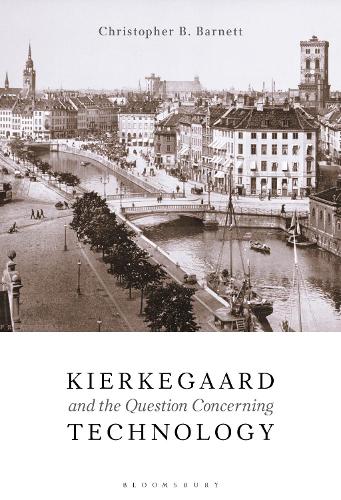
Kierkegaard and the Question Concerning Technology
(Paperback)
Available Formats
Publishing Details
Kierkegaard and the Question Concerning Technology
By (Author) Dr. Christopher B. Barnett
Bloomsbury Publishing PLC
Bloomsbury Academic USA
25th February 2021
United States
Classifications
Tertiary Education
Non Fiction
Philosophy of religion
198.9
Physical Properties
Paperback
256
Width 152mm, Height 229mm
349g
Description
Over the last several decades, technology has emerged as an important area of interest for both philosophers and theologians. Yet, despite his status as one of modernitys seminal thinkers, Sren Kierkegaard is not often seen as one who contributed to the field. Kierkegaard and the Question Concerning Technology argues otherwise. Christopher B. Barnett shows that many of Kierkegaards criticisms of "the present age" relate to the increasing dominance of technology in the West, and he puts Kierkegaards thought in conversation with subsequent thinkers who grappled with technological issues, from Martin Heidegger to Thomas Merton. Barnett shows that Kierkegaards writing, with its marked emphases on personal "upbuilding," stands as a place where deeper, non-technical modes of thinking are both commended and nurtured. In doing so, Barnett presents a Kierkegaard who remains relevant--perhaps all too relevant--in todays digital age.
Reviews
[Kierkegaard and the Question Concerning Technology] is a welcome contribution to Kierkegaard studies. It opens a new window onto Kierkegaards work and, more importantly, proves the value of looking through it. * Scottish Journal of Theology *
As an accomplished author, Christopher B. Barnett has an astonishing range that captivates our interest. In this book, Barnett renews the conviction that Kierkegaard still remains relevant as our critical contemporary and edifying companion on this pilgrimage of life. Barnett has achieved the most in-depth treatment of Kierkegaards critique of technological culture since Jacques Ellul. * Joshua Furnal, Assistant Professor of Systematic Theology, Radboud University, The Netherlands, and author of Catholic Theology after Kierkegaard (2016) *
In his new book, Christopher B. Barnett not only shows that Kierkegaard was an important influence on several of the major 20th-century critics of technology, such as Heidegger and Ellul, he also shows that the Dane anticipated key points of their specific warnings as to the dangers of modern technology. Through a careful analysis of the material culture of 1840s Denmark and a sensitive reading of the relevant texts, Barnett shows how Kierkegaard was able to identify elements of the technological mind-set, its promise and its perils, that have now become defining features of our social and intellectual environment. * George Pattison, 1640 Professor of Divinity, University of Glasgow, Scotland, and author of A Phenomenology of the Devout Life: A Philosophy of Christian Life, Part I (2018) *
Author Bio
Christopher B. Barnett is Associate Professor in the Department of Theology and Religious Studies at Villanova University, USA. He is the author of Kierkegaard, Pietism and Holiness (2011) and From Despair to Faith: The Spirituality of Sren Kierkegaard (2014), and as well as the editor and translator of Kierkegaard: Discourses and Writings on Spirituality (2019), which will be part of the well-known Classics of Western Spirituality series. He is also coeditor of Theology and the Films of Terrence Malick (2016) and Scorsese and Religion (2019).
